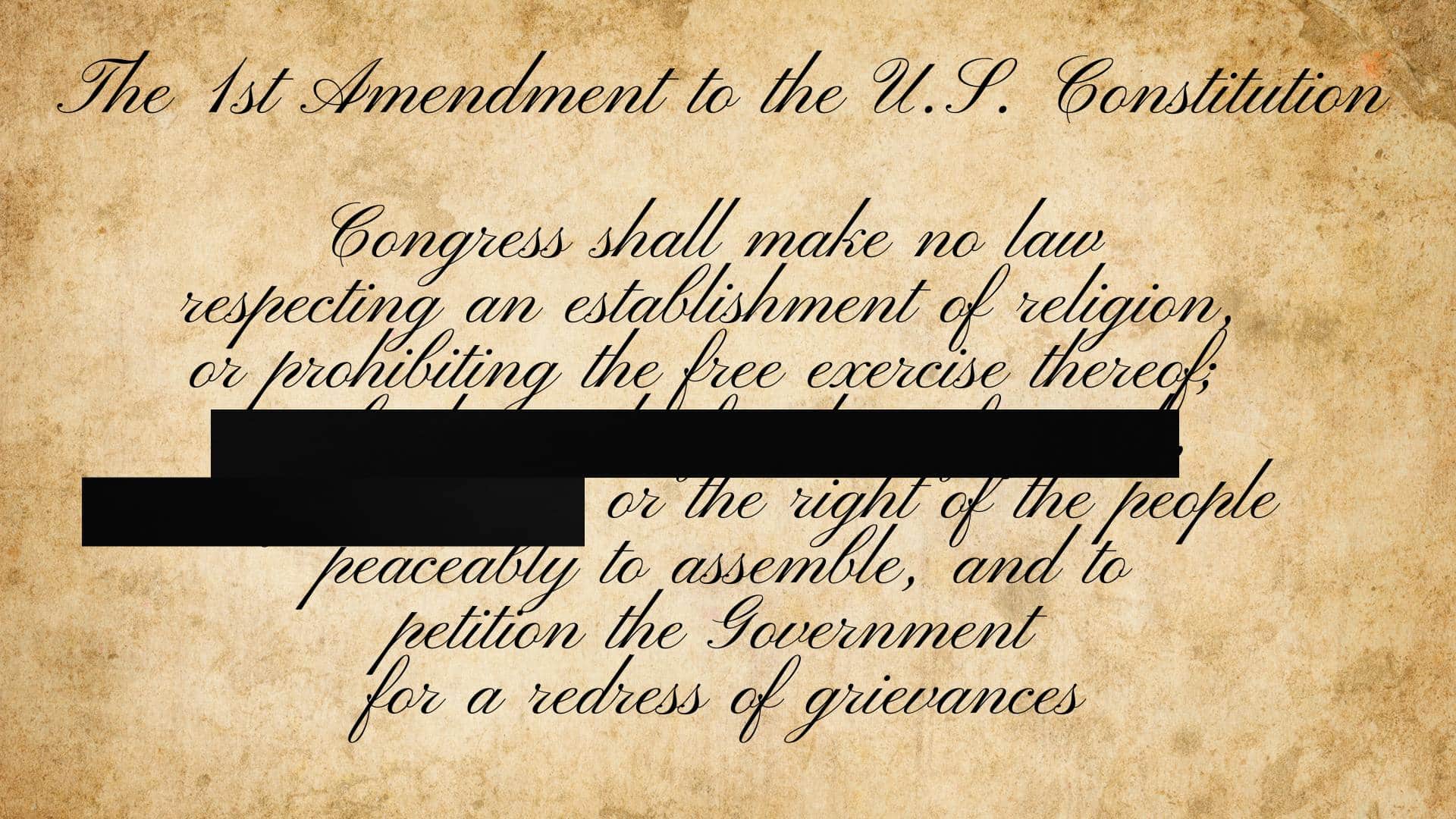In the United States there seems to be a war on free speech. But taking down TV shows is just one way the powerful can silence speech they don’t like.

The First Amendment to the U.S. Constitution with the sections on free speech and press redacted. (Illustration by News Decoder)
This morning we woke to the news that the ABC television network in the United States had suspended late night talk show host Jimmy Kimmel indefinitely over a statement he made about the accused assassin of right-wing political activist Charlie Kirk. In July, the CBS network announced that it would end The Late Show with Stephen Colbert in May. Colbert has for years mocked and criticized Donald Trump. These two announcements got us thinking about all the different ways governments and those in power try to silence speech.
The very first amendment to the U.S. Constitution begins with this phrase:
Congress shall make no law respecting an establishment of religion, or prohibiting the free exercise thereof; or abridging the freedom of speech, or of the press …
Because of that amendment, the world has long considered the United States the model for free speech — few countries live up to the standard that the United States has historically set. But across the world now, free speech seems to be endangered. So to put into perspective the many ways censorship can occur and in the many places we see this happening, we decided to offer up an assortment of News Decoder stories on this topic by both our professional correspondents and student authors.
